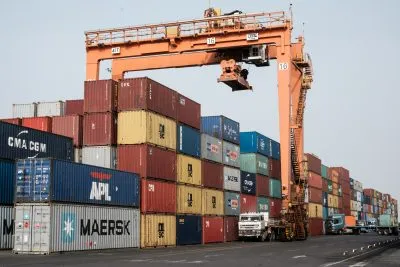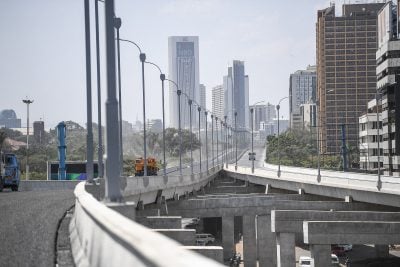Uche Orji is the chief executive of the Nigeria Sovereign Investment Authority tasked with harnessing the investment potential of the country’s substantial hydrocarbon revenues.
The Nigerian Investment Authority has three main funds: the Future Generations Fund, the Nigerian Infrastructure Fund and the Stabilisation Fund. Can you describe the differences between those three funds?
Uche Orji: The Future Generations Fund is a classic settings fund, which is designed for future generations of Nigerians to prepare for the eventual depletion of hydrocarbon resources. The Stabilisation Fund is designed to provide stabilisation support for this country’s economy. We tend not to take it much risk on this portfolio.
This fund has a short time horizon and low returns targets and is split between hedge assets and growth assets. The Infrastructure Fund is a Nigeria-focused fund that aids Nigerian infrastructure. Here we find investable sectors that will help Nigeria’s growth. This fund is focused on five sectors: these five are motorways, healthcare, power, real estate and agriculture.
Are these sectors chosen for the returns you can anticipate?
They are chosen for four reasons. The first point is that they are chosen for national priority. The second point is that can we get an acceptable return. The third reason is do we have regulatory and legal environment that allows for private sector investment, because we consider ourselves to be the private sector. The fourth is that we can attract co-investors as this allows us to diminish risk as we enter the market.
What about the co-investors? Who are you talking to: international funds, other Nigerian entities?
Our co-investors can range significantly. On infrastructure we have partnered with Julius Berger International (JBI) a German company. We are partnering on a power project with a big PE fund so our partners vary. The range goes from corporates, to sovereign wealth funds to private equity.
NSIA recently became a member of the International Forum of Sovereign Wealth Funds. What does that mean and how important of a milestone is it?
The International Forum of Sovereign Wealth Funds is a group of sovereign wealth funds that have come together to take positions and exchange ideas and views. It’s a signal of where we are to be a part of this international organisation.
You have a wide investment remit and there is a wide call for investors amongst African countries. What triggers your interest when countries are presenting investment opportunities?
There are several things really. Most important is that the rules for investment have to be fair for engagement for investors. When countries have investment treaties, for example. What are the rules of trade? Are the rules clear and are they enforceable?
Any opportunity to investment has to be clear about rules. This is so that people can feel that their investment is secure. People have to know when they are looking at investment in Africa that they might have to invest more in understanding the opportunities, to see the feasibility of projects. This is an issue across the continent.
You came to head the sovereign wealth fund after a long career abroad. How important is it for African countries and African organisations to tap into the diaspora, and to bring them back into these sort of roles that you are into now?
The most important commodity for any nation is human capital, and not just what you have on the ground. Africans and Nigerians who are out of their own country need to understand that there are opportunities here to develop their careers.
They can bring their ideas to our markets that are in their early stages and see exponential growth. People can come back and create opportunities. It’s not about attracting people back, it’s about people coming back and thinking that they’ve got better opportunities here in Africa than in London or New York.
Uche Orjji will be speaking at The Global African Investment Summit taking place in London on the 20th and 21st October, 2014.
Want to continue reading? Subscribe today.
You've read all your free articles for this month! Subscribe now to enjoy full access to our content.
Digital Monthly
£8.00 / month
Receive full unlimited access to our articles, opinions, podcasts and more.
Digital Yearly
£70.00 / year
Our best value offer - save £26 and gain access to all of our digital content for an entire year!
 Sign in with Google
Sign in with Google 



